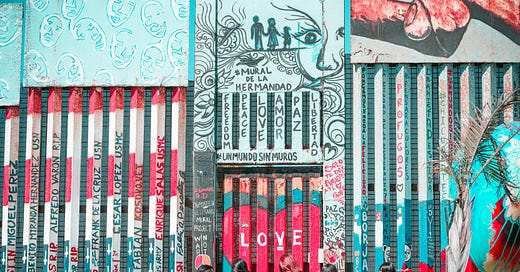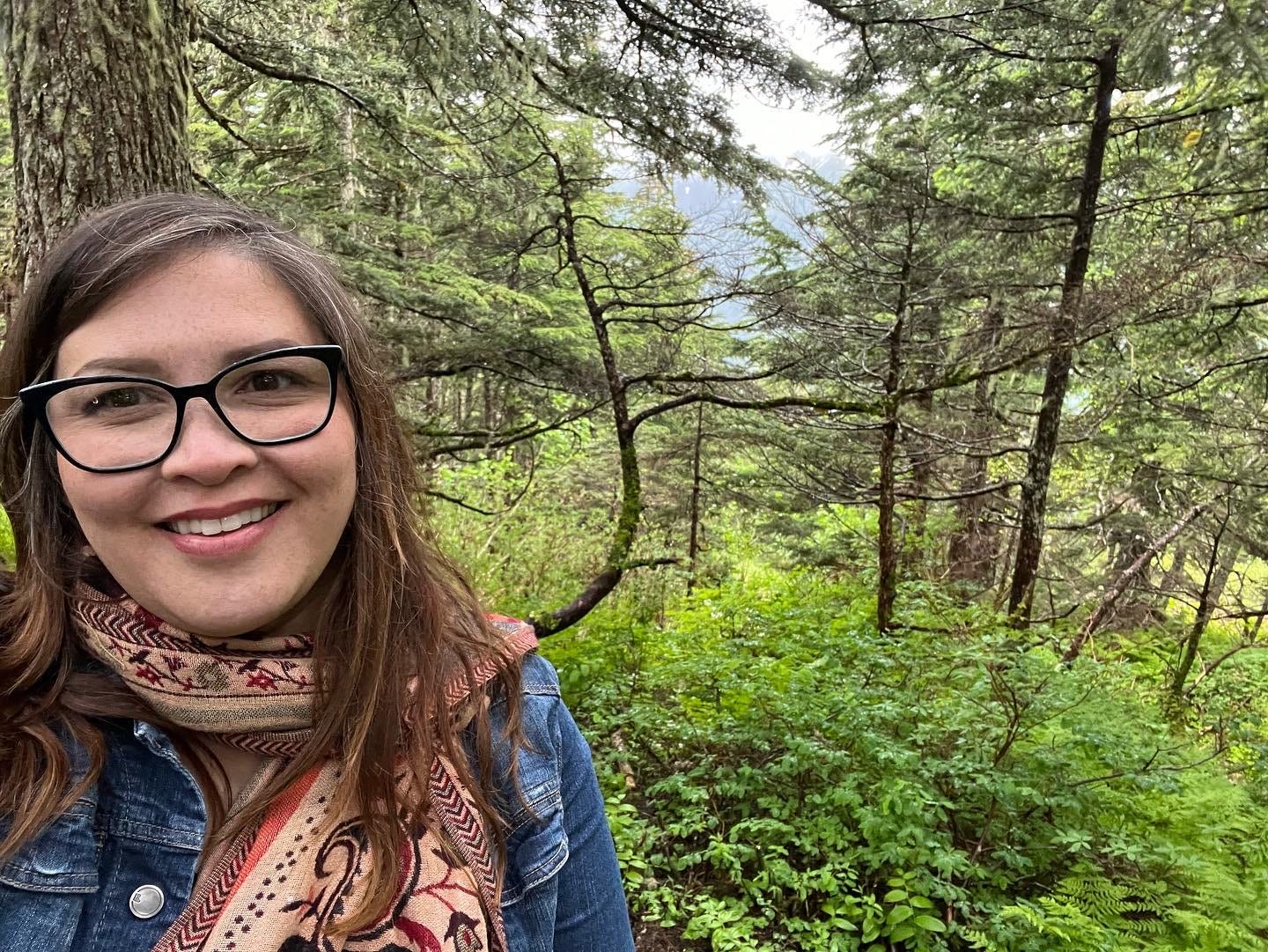It’s been a minute since the mid-90s, when Biggie’s “Juicy” was on repeat, and we’d slather ourselves in body glitter and CK One before heading across the border into Tijuana. It didn’t matter if it was a Wednesday or a Saturday. We parked near the Jack in the Box on the San Ysidro side and walked into Mexico like we owned the night. We were just kids.
Back then, no passport was needed. Just a state-issued ID and a confident smile. If you’ve never crossed on foot, there’s a transit plaza just beyond border, where drivers crammed us into cars like college kids doing laundry for the first time: unsorted and overstuffed. It didn’t matter if the 16 people shoved into the 5-seater sedan knew each other, we were just stoked for the cheap ride. Like a can of sardines, we were stacked two or three deep, limbs spilling out of windows, someone’s purse jamming into someone else’s back, or someone inevitably crammed against a chilly moon roof. We laughed and knew it was the start to a night that would make for the most excellent story the next morning over hangover breakfast burritos.
I was often the designated driver, not because I was particularly responsible, but because I had the largest vehicle. My first car was a gray Chevy Astro van handed down from my dad, which my friend Tracy nicknamed “Eeyore.” Dad once asked why the seats were missing. I made something up, but the truth was, I pulled them out to make room for more friends. It made sense at the time. If I drove, I could make sure we got back safely. I drank the least, and worried the most. It didn’t seem to matter as I still found myself at the mercy of men who grabbed me from behind, poured tequila down my throat, blew whistles in my face like I’d won a prize. It wasn’t glamorous, but it was a rite of passage of sorts. That was our version of freedom.
It’s only now, raising children of my own, that I realize how narrow my view of freedom used to be. We crossed for fun. For freedom, yes. From parents, government restrictions, societal expectations — the kind of freedom that comes from never truly needing to question whether you’re free in the first place.
Now I see the line differently.
Back then, I barely registered the Headstart-aged children trying to sell us chicle or handmade bracelets as we stumbled back toward border patrol in the wee hours of the morning. I didn’t think about how we were able to cross on a whim, with nothing more than a flimsy plan and $20. I didn’t think about how that same border was a barrier to others. And while we danced, others were fleeing. While we joked in line about who had the best fake ID and laughed as we replayed the highlights of the night to ourselves, someone else was praying for their child’s life.
That’s the difference privilege makes. Two people can look at the same line, and one sees a boundary they choose to cross, the other views it as one they are desperate to escape.
From Reckless to Reckoning
As I’ve moved through life, my relationship with the idea of freedom has changed. What once felt like fun now feels heavy in hindsight. I’m not ashamed of my past, but I am more aware of the context I moved through and how little I understood of it at the time. As I grow, I try to remain aware of my privilege use my position and power for good.
Seven years ago, I wrote a column for the Creston News Advertiser titled My Land, Your Land. In it, I shared a story about my college classmate Nelson Charles, a Lost Boy from Sudan. I’m ashamed to say I’ve spent more than a decade attempting coursework for my bachelors degree, and it wasn’t until I met Nelson that I started to focus. At five years old, he should’ve been starting kindergarten. Instead, he was walking across Africa alone, surviving famine, lions, and war. I mean, he was with others, but he had no map. No parents. Just other children with a will to live. That truth undoes me.
Or the story of my dad’s boss and mentor, Dr. Jack Bark, whose mother sewed money into her clothes and fled Paris when Nazis invaded. He was about Nelson’s age. I think about his mother planning an escape with two small boys, measuring her fear and hope against the unknown.
And in more recent years, I had a student that was placed with a family for a short time here in Creston who told me a harrowing story of leaving Honduras. He walked alone from the U.S.-Mexico border to Iowa, in search of a family member. He used gas station maps, and salvaged what he could from trash cans. He arrived with nothing. No money, phone, clothing, plan, or support. He ate from trash cans and appreciated how much he was able to salvage. American waste kept him alive.
I held my breath as I listened because I was trying not to cry. As he took his reading assessment, I told his guardian, “At his age, I was throwing fits over curfews.” She simply gave me a knowing nod and glance with widened eyes.
Raising Eyes Wide Open
I didn’t set out to become political, I just became a parent. I think parenting has helped me see the world differently. When I look at child, I see my child in every child. When I feel someone else’s desperation, I can’t help but ask, “What would I do?”
And the answer is simple. I’d do anything.
I’d lie, run, sacrifice, flee. Not because I want to, but because my love would compel me. To me, that’s not radical. That’s being human.
So when I hear people say, “Do it the right way,” I want to ask them if they’ve tried. Because I have.
I’ve tried to help my former students understand the CBP One app, the USCIS website, and even Iowa Legal Aid, and experienced the frustration first hand. As a former journalist with a college education, I feel pretty comfortable navigating government sites, even as a native English-speaker, it was a clusterfuck. I can’t imagine trying to use any of it as a non-English speaker, let alone under threat. The legal path isn’t a path as much as it’s a labyrinth, if there even is a path anymore.
I’m not saying we shouldn’t have laws. I just want our laws and systems to work, and work efficiently. And they should start from the premise that people are people first. Not threats. Not numbers. Not burdens. Just people.
What I Hope My Children See
My son doesn’t say the pledge. When I found this out I panicked and asked him to comply. He’s a gone through most of middle school standing in quiet defiance, and living here in rural Iowa, it honestly scares me to think of the kind of retaliation he could face. Not from his administration, but from his peers. After talking to him about it, and expressing my concerns, I support him and would fight for his right to not pledge. He’s not rejecting America or American values he’s questioning the meaning of freedom and asking deeper questions than I did at his age. I hope he keeps asking.
I hope my children continue to challenge broken systems as grow ups, and do it with the empathy to listen before judging. I’m still learning how to do this. I hope they never cross borders for fun without also understanding that not everyone gets to return home. I hope they never confuse ease with virtue.
And most of all, when they look across the border and see the faces on the other side, I hope they know we’re not the same, but we easily could be. The difference is luck, not worth. Circumstance, not character. And if they understand that, maybe they’ll realize their privilege isn’t something to cling to, but rather something to offer.
About Sarah and All Things IWC




Wow. Just wow. In all the years I spent in San Diego, I never thought of it like this. It does, however, take me back to the times I sat in line at the border with little kids cleaning my car mirrors (the couldn’t reach the windows; they were too small) hoping for a dollar. And the times I went with church groups to distribute food deeper into Mexico. I’ve always known I was an example of white privilege, but I’ve always looked at it from the point of view of black America, and barely looked at it at all lately, I’m embarrassed to say. Thank you for reopening my eyes. You’ve given your parents a lot to be proud of.